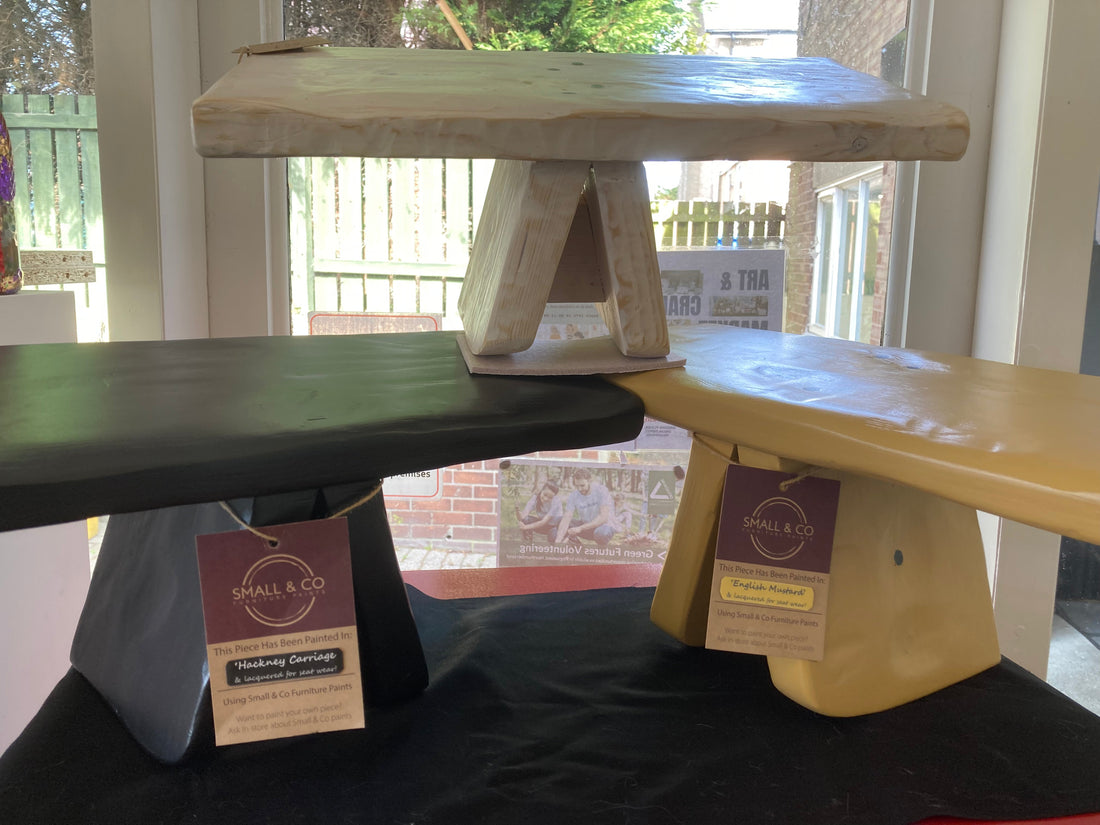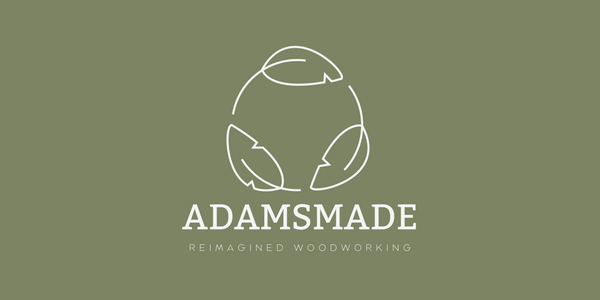
The art of renewal: How upcycling aligns with Buddhist principles
Share
In a world that constantly encourages consumption and waste, upcycling is more than just an eco-friendly trend, it’s an act of renewal, mindfulness, and deep respect for the materials we use. Upcycling is not just about restoring old furniture or repurposing forgotten items; it is a spiritual practice that aligns with the core principles of Buddhism.
“As someone who meditates daily and practices many other acts of spirituality, I see my craft as a form of mindful transformation, not just of objects, but of perspectives. The philosophy of impermanence, non-attachment, and renewal is at the heart of both upcycling and spiritual growth.” – Paul Adams, founder of ADAMSMADE.
When we choose upcycled, handcrafted, and intentional pieces, we bring a sense of mindfulness, sustainability, and spiritual awareness into our homes. Imagine sitting on a meditation stool that was lovingly restored from reclaimed wood, or keeping your jewellery in a beautifully repurposed box that once had another life. These aren’t just objects – they are reminders of renewal, impermanence, and the power of transformation.
Let’s explore how upcycling and Buddhism are deeply connected.
Impermanence – finding beauty in change
In Buddhism, impermanence (anicca) teaches us that nothing stays the same forever. Everything in life – our emotions, experiences, and even the material world – constantly shifts and evolves.
Upcycling embraces this principle wholeheartedly. When working on a discarded piece of furniture, a jewellery box, or a meditation stool, you see beyond its current state. Rather than viewing it as broken or useless, one can recognise its potential for transformation.
Just as we change and grow throughout life, objects can also take on new forms and new purposes. That worn-out wooden chair? It can be revived into something stunning and meaningful. That old cabinet? It can be reborn as a centrepiece in someone’s home.
By honouring impermanence, we learn to see potential in everything, not just in the things we create, but in ourselves as well.
Non-attachment – letting go of perfection
One of the greatest lessons Buddhism teaches is non-attachment (anatta) – the idea that we should not cling too tightly to things, expectations, or even our own rigid ideas.
“Upcycling has helped me embody this principle in my craft. When restoring old items, I have learned to embrace imperfections rather than fight against them. A scratch on a tabletop, a faded patch on an old jewellery box, or a slightly uneven texture in reclaimed wood – these are not flaws. They are part of the story.” – Paul Adams, founder of ADAMSMADE
Likewise, in life, when we release our need for everything to be perfect, we find peace, creativity, and true contentment.
Mindfulness – the art of being present in creation
“Every time I sand down an old wooden surface, paint a piece by hand, or carefully select sustainable materials, I enter a state of mindfulness. Upcycling, much like meditation, requires being fully present in the moment – feeling the textures of the materials, noticing the subtle changes, and allowing creativity to flow naturally.”
Upcycling can be a meditative practice. It’s a process that slows you down, connects you with your senses, and fosters deep appreciation for the present moment.
Creating something new from something old is a sacred act of renewal – a reminder that beauty and value can always be restored, even when something seems worn or forgotten.
Gratitude – respecting the materials we use
When upcycling, you are honouring the materials you work with. Rather than treating wood, metal, or fabric as disposable, you acknowledge the life and history behind each piece. ADAMSMADE makes an active choice to work with sustainable materials, repurpose forgotten items, and give them new meaning – not just for environmental reasons, but out of deep respect for the resources we have.
In a world that promotes constant buying and discarding, upcycling is an act of gratitude and reverence. It’s a way of saying, “This still has purpose. This still has life.”
Final thoughts – upcycling as a path to mindful living
At ADAMSMADE, upcycling is more than a craft – it’s a practice of renewal, patience, and appreciation. It teaches us to see beyond the surface, to embrace imperfections, and to honour the materials we use.
Much like Buddhism, it reminds us that everything has the potential for transformation, whether it’s an old chair, a worn-out jewellery box, or even our own lives.
So next time you come across something old or broken, pause. Look closer. Instead of discarding it, ask yourself – how can this be renewed?
Because often, with a little care and creativity, what seems worn-out is just waiting for a second life.
Written by Caroline Adams
